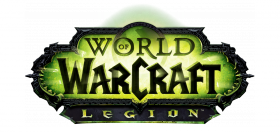Private Servers, MMO Piracy and the Future of DRM
Blizzard was awarded $88 million in damages last week from its lawsuit against Scapegaming, a large private WoW server; meanwhile, the rest of the gaming industry is taking new copy protection cues from MMOs
Although the MMO industry might not be losing that much business from private servers (with the exception of some markets, according to MMO anti-piracy groups like China's OGAAP), the rest of the gaming industry is scurrying to find new anti-piracy solutions. Last year Ubisoft announced it was working on new anti-piracy techniques, which were later unveiled in Assassin's Creed 2 as the infamous connection-required DRM. Similar to MMO games, Ubisoft's new DRM protection requires a constant Internet connection to access the game, even in single-player mode.
The new DRM technology in Assassin's Creed 2 and Silent Hunter 5 outraged thousands of gamers and sparked a PR nightmare for Ubisoft; players couldn't access the game if their Internet connection was down and game saves were lost if their router malfunctioned. Ubisoft's servers even went down at one point, denying game access to customers. Worse still, the pirate "scene" cracked Ubisoft's DRM within 24 hours, effectively making pirated copies more desirable than legitimate versions. Ubisoft eventually deployed a patch that helped users retain game saves when kicked offline, and it appears that future games will use Valve’s Steamworks API instead of the "always online" solution.

Blizzard's new Battle.net system also sparked debate last year when it was announced that StarCraft 2 wouldn't support LAN play, a defining feature of the original game. Although Blizzard's new DRM used in StarCraft 2 isn't as restrictive as Ubisoft's, the server-side authentication required to play the offline, single-player campaign is frustrating to some.
"While single-player will be available offline, installation must have an internet connection in order to proceed," Incgamers.com explains in a Q&A with the SC2 development team. "You are also required to have or signup for a Battle.net account in order to install the game. All achievements and friends lists etc will be available as soon as you logon, but the actual single player game is available anyway. 'You can [play single player offline], but we don't encourage it.' [lead designer Dustin] Browder said. 'We totally allow it if you want to do it,' but the point is 'you don't get access a lot of the stuff.'"
Online gaming piracy is forcing desperate companies to think outside the box; Codemasters CEO Rod Cousens suggests the solution might be in selling "unfinished games," according to an interview with CVG. Admitting that traditional DRM isn't doing the trick, Cousens wants publishers to "sell unfinished games" and "to offer the consumer multiple micro-payments to buy elements of the full experience." He explains that even if such games are pirated, the "complete" experience won't be available unless players buy additional elements.
Cousens is essentially suggesting the equivalent of distribution and revenue models used in MMOs like Dungeons & Dragons Online, Warhammer Online, Lord of the Rings Online and many other free-to-play titles. As digital distribution continues to grow in popularity, we've already seen the precursor of this idea in the form of downloadable content (which is commonly pirated in addition to the "core" game).

So the issue comes full-circle, back to server-side authentication and some form of "always connected" DRM, which most gamers loathe. It works for MMOs because the whole point is online gameplay, and the same is usually true of multiplayer-heavy games like StarCraft 2, Left 4 Dead and Modern Warfare 2. But even then—and especially with solo-oriented games, like we've seen in Assassin's Creed 2—players are having a tough time accepting the "always connected" solution that publishers are shoving down our throats.
Until the gaming industry can find some kind of compromise—which should become easier as the older generation of "Doom LANers" retires—the best way to vote is with your wallet. Support developers who have enough faith in their products to release a game without any copy protection at all, like the uber-successful World of Goo. Snub publishers who incorporate ridiculous protections that require "always connected" restrictions if you don't agree with them. Let the industry know that the best way to curb piracy is to make legitimate game copies more desirable than pirated ones, as obvious as that concept should already be.





